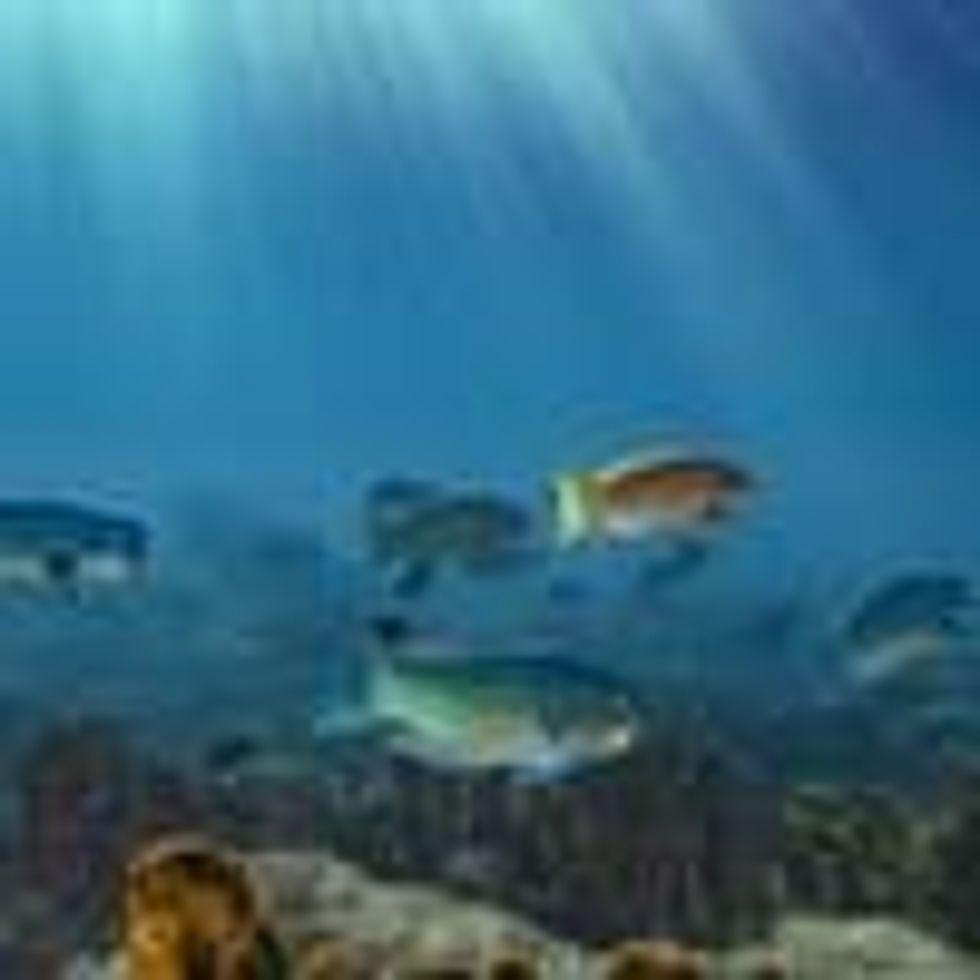Greenpeace U.K. on Thursday announced that a government body has blocked the environmental group from expanding an underwater limestone boulder boundary created last week to safeguard a protected marine area from destructive fishing.
"We'd much rather the government just did their job."
After the group revealed plans to load more boulders onto the ship Arctic Sunrise in Poole Quay, "the Marine Management Organization (MMO) threatened Poole Harbour Commissioners with legal action if they allowed the boulders into port," Greenpeace said in a statement. "The gates to Bulwark Quay where the ship is berthed were also locked this morning, and the haulage company transporting the boulders also received a legal threat."
A week ago, in the wake of the fifth round of failed negotiations for a global ocean treaty, the Greenpeace ship sailed to a marine protected area (MPA) in the English Channel to drop boulders--emblazoned with names of celebrities and politicians supporting the action--to prevent bottom trawling, a fishing practice that involves dragging a net along the seafloor.
"Right now, there's an industrial fishing frenzy happening in U.K. waters, and what's our government doing about it?" Will McCallum, head of oceans at the group, said at the time. "Greenpeace U.K. has created this underwater boulder barrier as a last resort to protect the oceans. We'd much rather the government just did their job."
"Ocean protection is even more urgent now that our leaders have failed to help secure a global ocean treaty," he stressed, calling on the incoming Tory prime minister--Liz Truss, who took on the role Tuesday--to "protect local fishing communities and immediately ban industrial fishing in marine protected areas by tweaking commercial fishing licenses."
The campaigner reiterated Greenpeace's call for action to block destructive fishing in MPAs after the government thwarted plans "to protect our oceans" by dropping more boulders in the South West Deeps (East) MPA.
"The Marine Management Organization has put an astonishing amount of energy into trying to stop marine protection," he said Thursday. "They are using intimidation tactics to block ocean defenders, while brazenly allowing industrial fishing vessels to destroy seabed habitats in our so-called marine protected areas."
According to McCallum: "The MMO is failing the U.K.'s small-scale fishermen. Their livelihoods are quickly becoming unviable; many are returning home with empty nets while huge factory boats scoop up all the fish in sight. It's no wonder that two-thirds of our fish species are in decline."
Related Content
90% of Marine Species Face Extinction Under Emissions Status Quo: Study
Julia Conley
"It's clear that the government can act quickly when it wants to--so they have no excuse for their painstakingly slow approach to ocean protection," he declared. "We stand by our demand that industrial fishing is banned in every U.K. marine protected area, by adding a simple clause to commercial fishing licenses. We won't stop until our oceans are truly protected."
Greenpeace U.K. also continues to call for interactional action on ocean protection.
"Our blue planet is suffering. Precious marine habitats are home to lots of sealife and store huge amounts of carbon. But industrial fishing, the climate crisis, plastic pollution and more threaten them," Anna Diski wrote for the group's blog last week. "Scientists agree: To ensure marine ecosystem survival, we must protect at least 30% of the global oceans by 2030."




